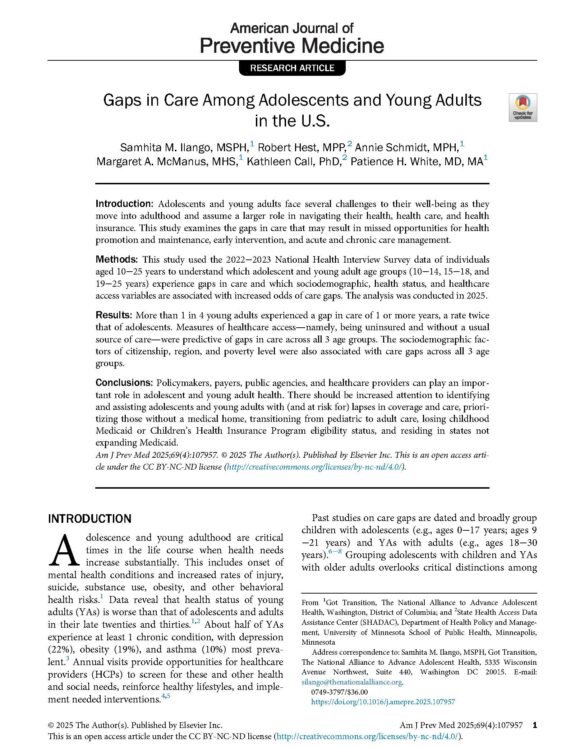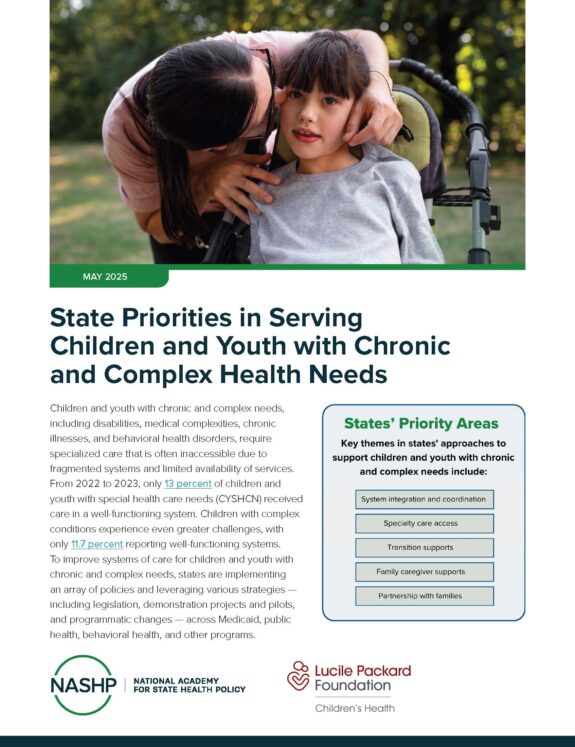Care Coordination for Children with Medical Complexity: Whose Care Is It, Anyway?
Children with medical complexity (CMC) have multiple chronic conditions and require an array of medical- and community-based providers. Dedicated care coordination is increasingly seen as key to addressing the fragmented care that CMC often encounter. Often conceptually misunderstood, care coordination is a team-driven activity that organizes and drives service integration.
This article examines models of care coordination and clarifies related terms such as care integration and case management. Authors also discuss the need for infrastructure building, design and implementation leadership, use of care coordination tools and training modules, and appropriate resource allocation under new payment models.
Related Webinar: The lead author and experts in the field review the article’s key content and discuss why care coordination is vital to improving the system of care.
This article is part of a supplement to Pediatrics entitled, “Building Systems that Work for Children with Complex Health Care Needs.”


